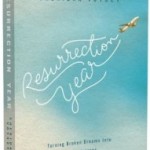
Chora Church, exterior, back view.
As Roy engages in the daunting task of sorting out our photographs, I asked him to share a few on my blog.
Here are a few of The Church of the Holy Saviour in Chora, a Byzantine Jewel, which Simon Jenkins of the Ship of Fools had suggested we see. I loved it.
Now over to Roy:
Chora Church is a small church some distance from the historic center of Istanbul, but the mosaics, regarded as the most beautiful surviving Byzantine mosaics in Istanbul, were definitely one of the highlights of our visit. Being out of the way, it is usually not very crowded, and being small allows a much closer view of the mosaics. It was first a church, then a mosque, and now a museum. I have divided the images into sections: exterior, major mosaics of Christ and the Virgin, smaller mosaics of the life of Christ, and the frescoes of the Parekklesion. The last two are the most unusual, at least to the non-Byzantine viewer. [Read more…]


























